
Itapuã: Where Culture and Serenity Converge in Salvador
Nestled on the northeastern coast of Salvador, Itapuã is a charming neighbourhood that offers an exquisite blend of cultural heritage, natural beauty, and local vibrancy. Famous for its picturesque beaches lined with coconut palms and gentle waves, Itapuã is a haven for those seeking both relaxation and a taste of authentic Bahian culture. Its serene shores are perfect for sunbathing, leisurely swims, and long, reflective walks during sunset, providing a tranquil escape from the bustling city life. Beyond its stunning coastline, Itapuã is steeped in cultural significance. The neighbourhood is home to the iconic Itapuã Lighthouse, a historic beacon that has guided sailors since the 19th century. Nearby, the statue of Yemanjá, the Afro-Brazilian deity of the sea, stands as a testament to the deep spiritual roots of the community. Visitors can also explore the Vinicius de Moraes Square, named after the famous Brazilian poet and composer, where local musicians often perform, filling the air with melodious tunes that capture the soul of Bahia. Culinary enthusiasts will find Itapuã a delightful destination, with numerous beachfront restaurants and bars offering traditional Bahian cuisine. From acarajé, a savory fritter made from black-eyed peas, to moqueca, a rich seafood stew, the local flavors are sure to tantalize your taste buds. Whether you are lounging by the beach, exploring cultural landmarks, or indulging in local delicacies, Itapuã promises a memorable and multifaceted experience for every traveler.
Local tips in Itapua
- Visit the beach early in the morning to avoid the crowds and enjoy the serene atmosphere.
- Don't miss the acarajé from local vendors; it's a must-try local delicacy.
- Take a guided tour of the Itapuã Lighthouse for historical insights and panoramic views.
- Carry cash as some small eateries and shops may not accept credit cards.
- Stay hydrated and use sunscreen, especially if you plan to spend long hours at the beach.
Itapuã: Where Culture and Serenity Converge in Salvador
Nestled on the northeastern coast of Salvador, Itapuã is a charming neighbourhood that offers an exquisite blend of cultural heritage, natural beauty, and local vibrancy. Famous for its picturesque beaches lined with coconut palms and gentle waves, Itapuã is a haven for those seeking both relaxation and a taste of authentic Bahian culture. Its serene shores are perfect for sunbathing, leisurely swims, and long, reflective walks during sunset, providing a tranquil escape from the bustling city life. Beyond its stunning coastline, Itapuã is steeped in cultural significance. The neighbourhood is home to the iconic Itapuã Lighthouse, a historic beacon that has guided sailors since the 19th century. Nearby, the statue of Yemanjá, the Afro-Brazilian deity of the sea, stands as a testament to the deep spiritual roots of the community. Visitors can also explore the Vinicius de Moraes Square, named after the famous Brazilian poet and composer, where local musicians often perform, filling the air with melodious tunes that capture the soul of Bahia. Culinary enthusiasts will find Itapuã a delightful destination, with numerous beachfront restaurants and bars offering traditional Bahian cuisine. From acarajé, a savory fritter made from black-eyed peas, to moqueca, a rich seafood stew, the local flavors are sure to tantalize your taste buds. Whether you are lounging by the beach, exploring cultural landmarks, or indulging in local delicacies, Itapuã promises a memorable and multifaceted experience for every traveler.
Iconic landmarks you can’t miss
Mermaid of Itapuã
Discover the enchanting Mermaid of Itapuã, a symbol of Salvador's coastal beauty and rich folklore, on the shores of Itapuã beach.
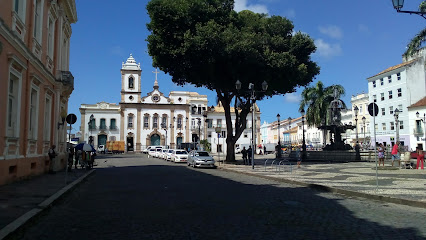
Farol de Itapuã
Explore the historic Farol de Itapuã in Salvador, Bahia, offering stunning coastal views and a glimpse into Brazil's maritime past.
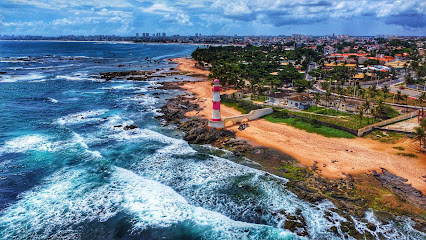
Abaeté Lagoon
Discover Abaeté Lagoon in Salvador: where stunning natural beauty meets rich Afro-Brazilian history and culture in a serene, protected oasis.
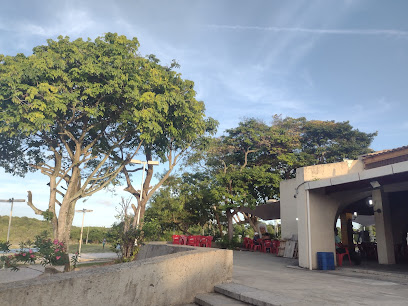
Praça Vinicius de Morais
A scenic spot in Itapuã, Salvador, honoring the poet Vinicius de Moraes with a bronze sculpture and engraved totems of his work.
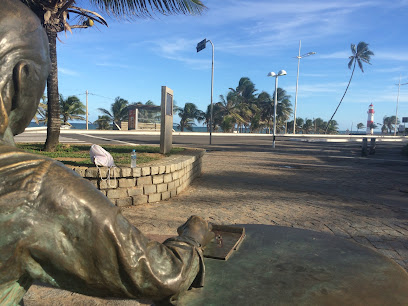
Rua da Música
Experience the vibrant culture and musical heritage of Bahia in Salvador's lively Rua da Música, a hub of art, music, and local traditions.
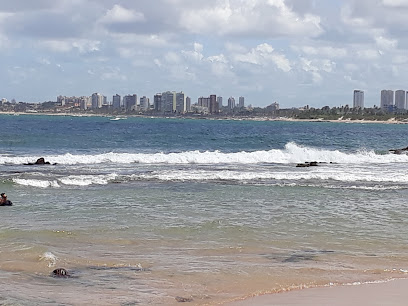
Mother Stella De Ochosi Monument
Discover the Mother Stella De Ochosi Monument in Salvador, a landmark that honors Afro-Brazilian heritage and the legacy of a revered Candomblé priestess.
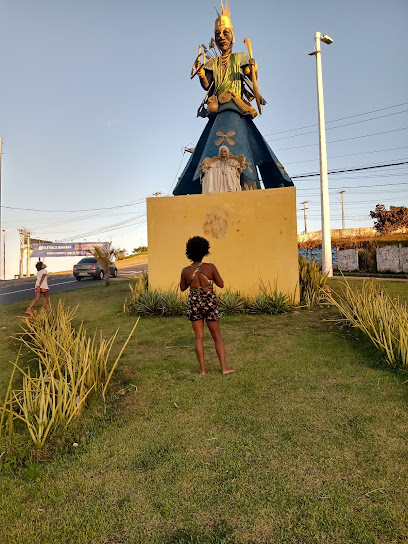
Largo de itapua
Experience the vibrant Largo de Itapuã in Salvador: culture, cuisine, and coastal beauty converge in this lively Bahian square.
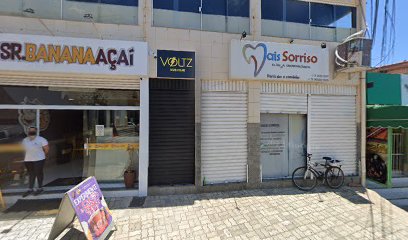
Itapuã
Discover Itapuã, a stunning beach pavilion in Salvador, Bahia, known for its beautiful sands, vibrant culture, and captivating sunsets.
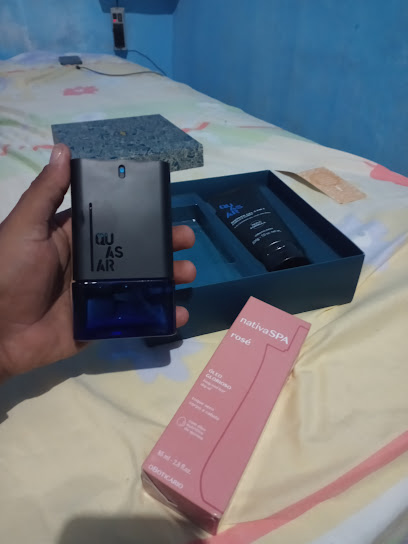
Mirante de Oxaguiã
Discover panoramic Salvador views from Mirante de Oxaguiã, a culturally rich and spiritually significant viewpoint on Monte de Itapuã.
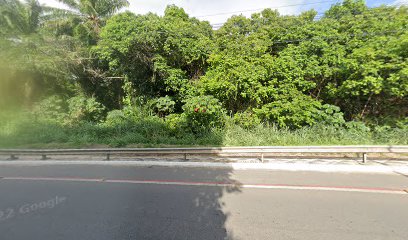
Ponta de Oxumarê
Explore Ponta de Oxumarê in Salvador's Itapuã: A historical landmark with cultural significance and connection to Afro-Brazilian heritage.
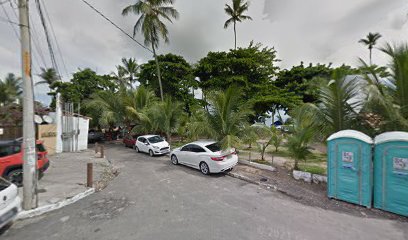
Unmissable attractions to see
Mermaid of Itapuã
Discover the iconic Mermaid of Itapuã, a symbol of Salvador's folklore and coastal beauty, located on the vibrant shores of Itapuã Beach.
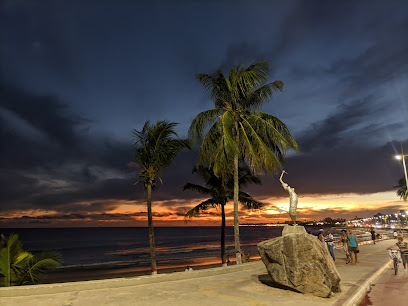
Farol de Itapuã
Explore the iconic Farol de Itapuã in Salvador, Bahia: a historic lighthouse offering breathtaking views and a glimpse into Brazil's maritime past.
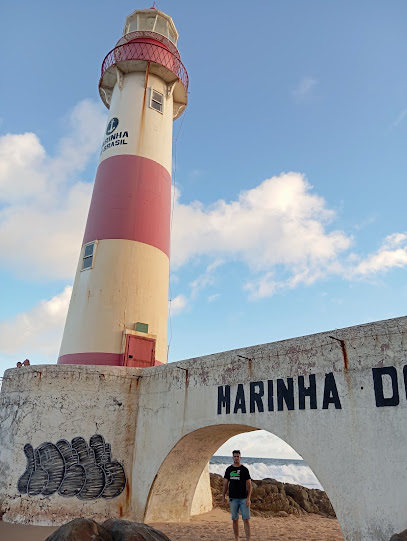
Abaeté Lagoon
Discover the natural beauty and cultural richness of Abaeté Lagoon in Salvador, a sanctuary of peace, history, and Afro-Brazilian traditions.
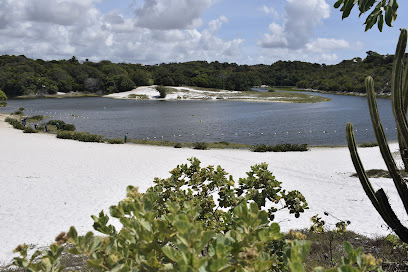
Mother Stella De Ochosi Monument
A cultural landmark in Salvador's Itapuã, honoring Mãe Stella de Oxóssi and Afro-Brazilian spiritual heritage.
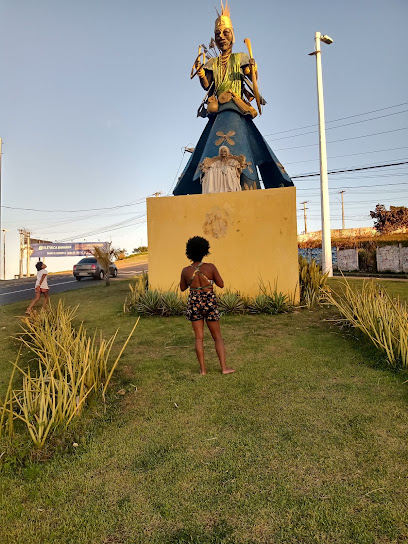
Mirante de Oxaguiã
Discover panoramic views and spiritual connection at the Mirante de Oxaguiã in Salvador's historic Itapuã neighborhood.
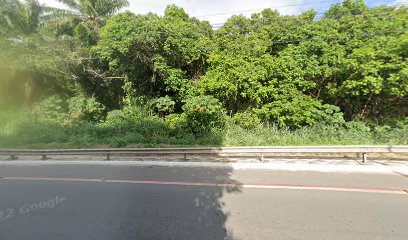
Mirante de Xangô
Discover breathtaking views and Afro-Brazilian heritage at Mirante de Xangô, a sacred scenic overlook in Salvador's vibrant Itapuã neighborhood.
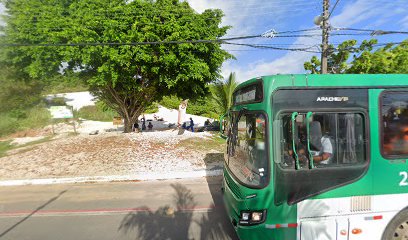
Praia das Bolas Itapuã
Discover Praia das Bolas in Salvador: Tranquil shores, vibrant culture, and breathtaking sunsets await in the heart of Bahia's Itapuã.
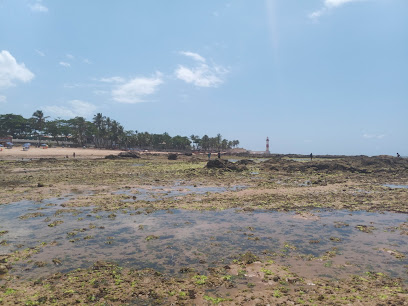
Pico de Oxalá
Discover panoramic views and Afro-Brazilian spirituality at Pico de Oxalá in Salvador's Itapuã neighborhood. A serene escape with cultural significance.
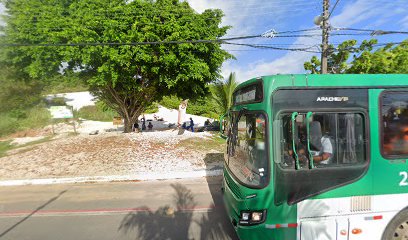
Monumento Carlos Bastos
Discover the Monumento Carlos Bastos in Salvador, a tribute to Brazilian culture amidst the beauty of Bahia's coastline.
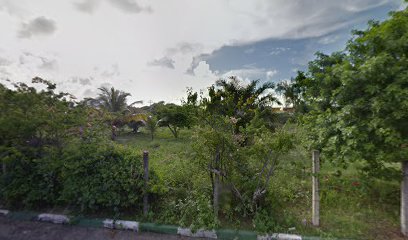
Boca de Oxaguiã
A sacred Candomblé site in Itapuã, Salvador, where devotees honor Oxaguiã with offerings and rituals, reflecting Afro-Brazilian spirituality.
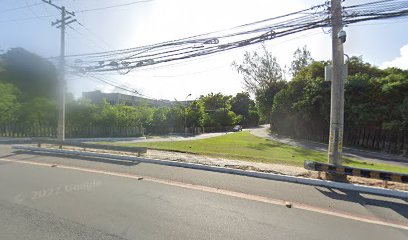
Poça de Iemanjá
A serene spot in Salvador's Itapuã to connect with Iemanjá, the Afro-Brazilian Queen of the Sea, through offerings and prayers.
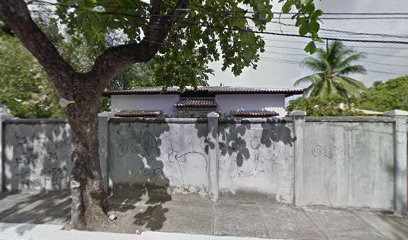
Essential places to dine
Villa Bahiana
Experience authentic Bahian cuisine at Villa Bahiana, where local flavors meet warm hospitality in Itapuã, Salvador.
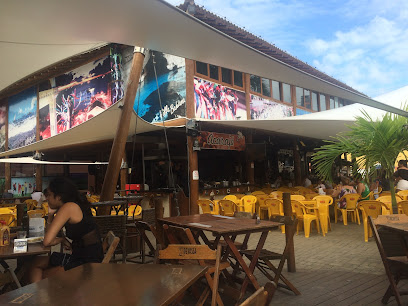
Ki-Mukeka
Discover authentic Bahian cuisine at Ki-Mukeka in Itapuã, Salvador – home to traditional moqueca and vibrant local flavors.
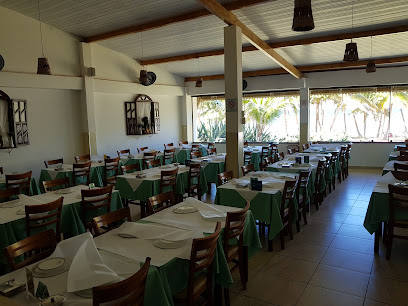
Restaurante Mistura Itapuã
Experience exquisite seafood dining at Restaurante Mistura Itapuã - where every dish tells a story of Bahia's rich culinary heritage.
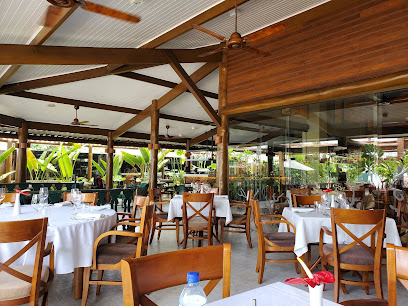
Loro - Pedra do Sal
Experience fresh seafood delights at Loro - Pedra do Sal in Salvador's enchanting Itapuã neighborhood, where flavor meets culture.
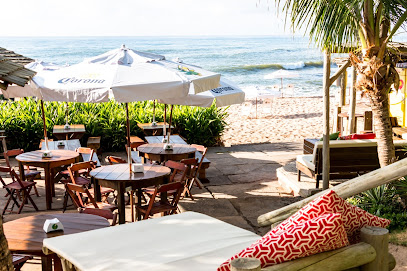
A Cabana
Experience the best seafood buffet in Itapuã at A Cabana - savor fresh crab dishes and delicious pizzas with stunning ocean views.
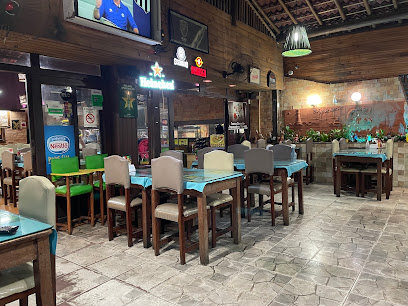
Caranguejo do Tchê
Experience authentic Bahian cuisine at Caranguejo do Tchê - savor delicious seafood in the heart of Itapuã.
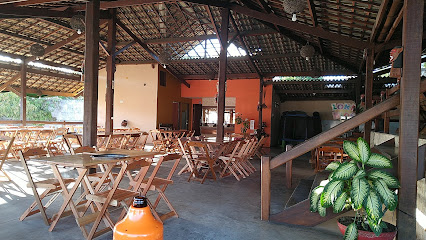
Restaurante Sabores de Itapuã
Discover the rich flavors of Brazilian cuisine at Restaurante Sabores de Itapuã - where every dish tells a story.
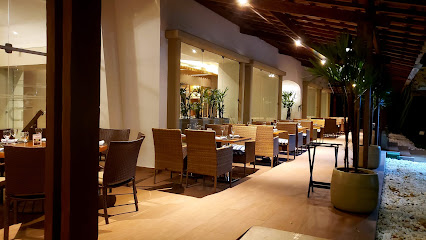
Coco Mel Restaurante
Discover authentic Bahian flavors at Coco Mel Restaurante in Salvador's vibrant Itapuã neighborhood.
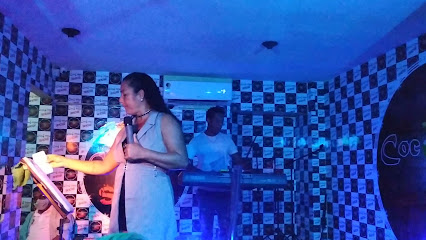
Emporio do Bira
Experience authentic Bahian cuisine at Emporio do Bira in Itapuã - where ocean views meet delicious local flavors.
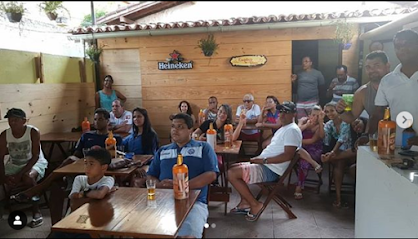
Bistrô do Rei - Itapuã
Experience authentic Bahian cuisine at Bistrô do Rei in Itapuã, where every dish tells a story of flavor and tradition.
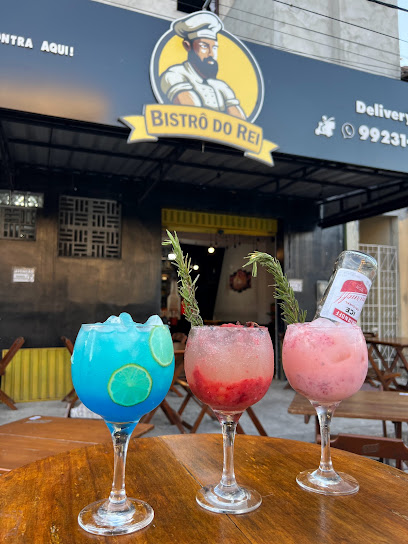
Markets, malls and hidden boutiques
Itapuã Shopping
Discover Itapuã Shopping, a vibrant center for shopping, dining, and cultural experiences in the heart of Salvador, Brazil.
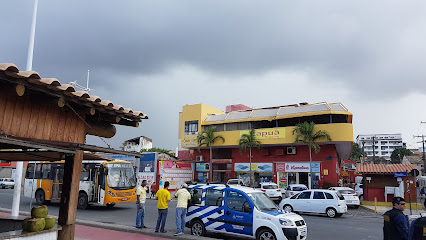
Bahia Shopping
Explore Bahia Shopping in Salvador for a diverse shopping, dining, and entertainment experience that captures the essence of Bahian culture.
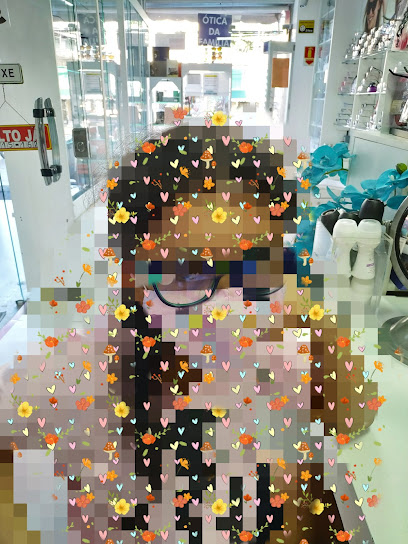
Shopping do Farol
Discover Shopping do Farol: Salvador's vibrant shopping mall offering local and international brands, dining, and a taste of Bahian culture.
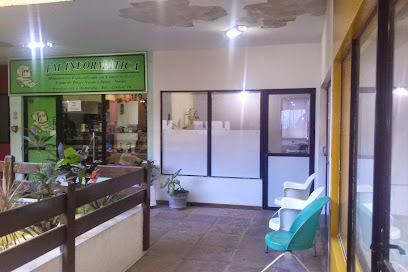
Água Viva modas
Explore the vibrant styles at Água Viva Modas, the go-to women's clothing store in Itapuã, Salvador, where local culture meets modern fashion.
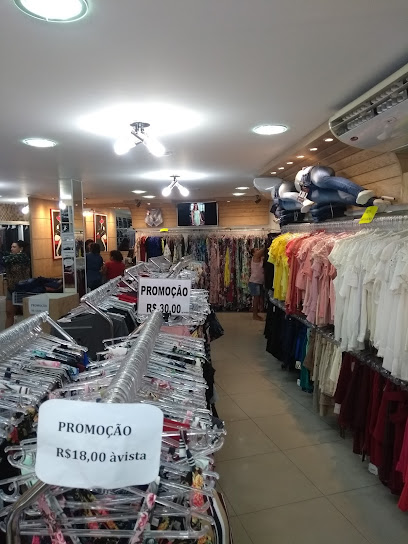
Águas de Bamboo
Explore the unique fashion offerings at Águas de Bamboo, a charming clothing store in Itapuã, Salvador, reflecting the vibrant culture of Bahia.
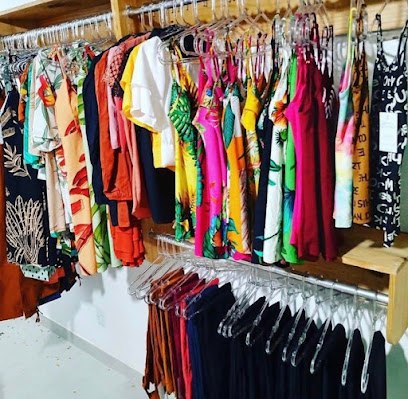
Dymilla Store - Moda Feminina - Itapuã
Explore the vibrant styles of Dymilla Store in Itapuã, Salvador, where fashion meets the spirit of Bahia in a chic shopping experience.

Aluguel de Vestidos: Closet Friends
Discover the elegance of Closet Friends in Itapuã, Salvador, where stylish full dress rentals meet personalized service for unforgettable moments.
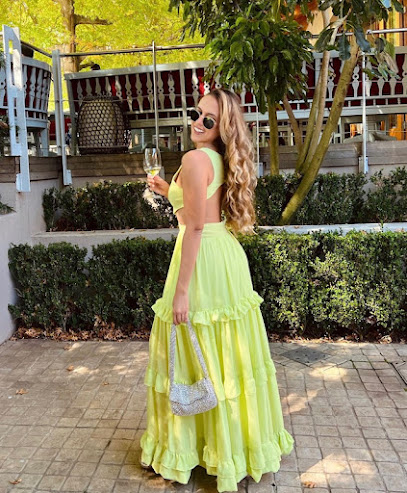
SheepStore
Explore unique local fashion at SheepStore in Itapuã, Salvador - a stylish destination for every fashion enthusiast.
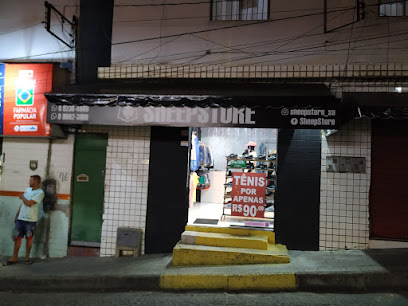
Dona Maria boutique
Discover unique Brazilian fashion at Dona Maria Boutique, a stylish clothing store located in the heart of Itapuã, Salvador.

Boutique das Legitimas
Discover authentic Bahian crafts and stylish apparel at Boutique das Legitimas in Itapuã, Salvador, a treasure trove for tourists seeking unique souvenirs.
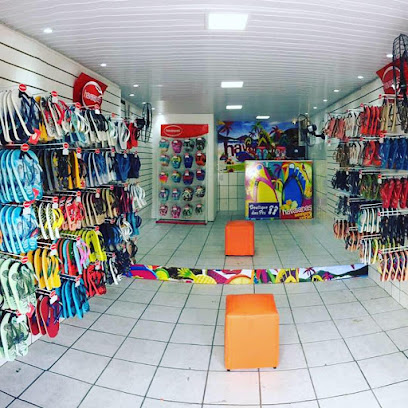
Essential bars & hidden hideouts
Alerta Praia Bar
Experience the vibrant atmosphere and stunning ocean views at Alerta Praia Bar, a must-visit destination in Salvador for cocktails and relaxation.
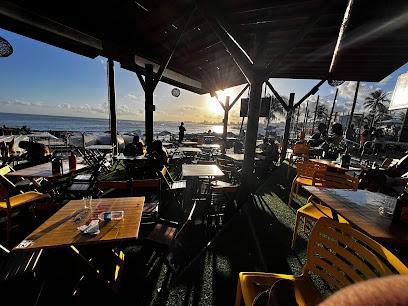
Bar do Mamão
Discover Bar do Mamão in Itapuã, Salvador – a vibrant bar and restaurant offering local flavors and a lively atmosphere for all visitors.
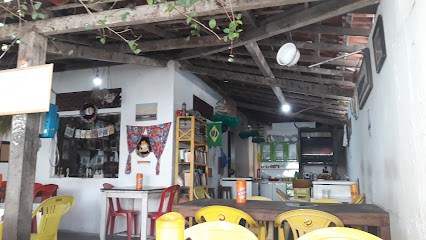
Boteco Lambretão
Discover the lively Boteco Lambretão, a paradise for music lovers and seafood enthusiasts in the heart of Salvador, Bahia.
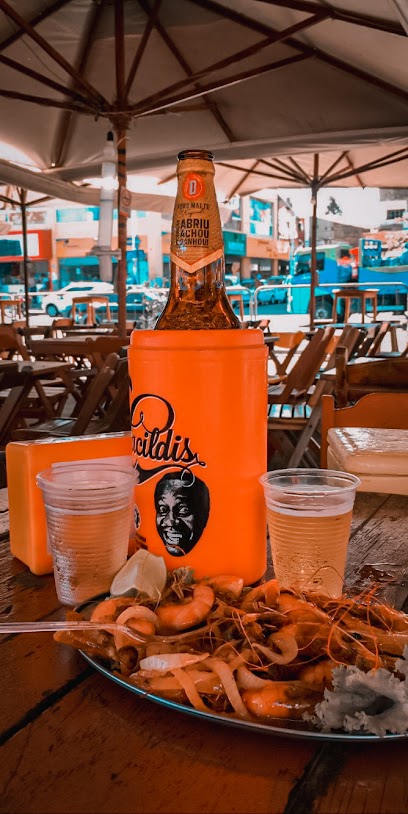
BlackBom Music Bar
Discover the lively BlackBom Music Bar in Itapuã, Salvador - a hub for live music, vibrant cocktails, and a taste of Brazil's nightlife.
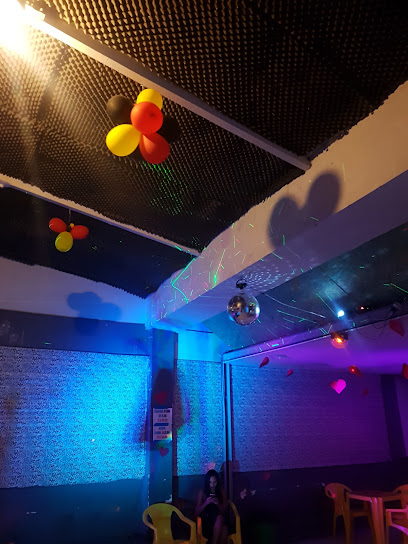
Toca do Dinho
Discover Toca do Dinho: A lively bar in Salvador, Bahia, where local culture, refreshing drinks, and stunning sea views come together.
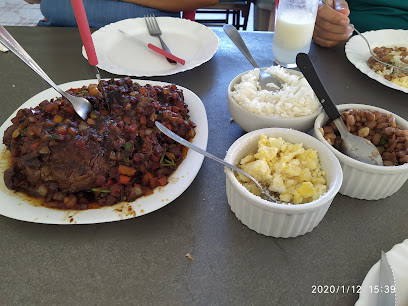
Bar do Bonito
Discover the vibrant flavors of Bahia at Bar do Bonito, a charming bar in Itapuã offering authentic local cuisine and a laid-back atmosphere.
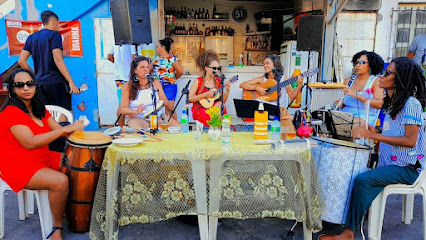
Boteco Chapa Quente
Experience the vibrant atmosphere of Boteco Chapa Quente, a live music bar in Itapuã, Salvador, where local flavors and rhythms come alive.
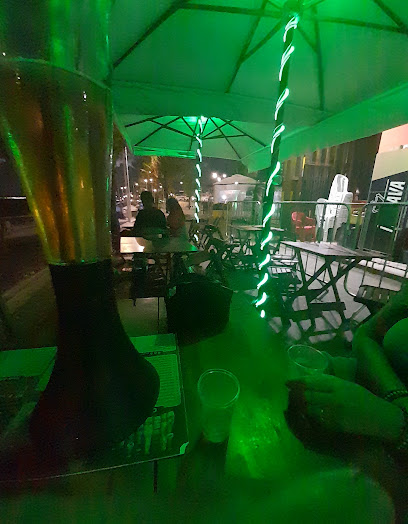
Bruxos Bar e Restaurante
Discover the lively Bruxos Bar e Restaurante in Itapuã, Salvador, where cocktails and local cuisine create an unforgettable dining experience.
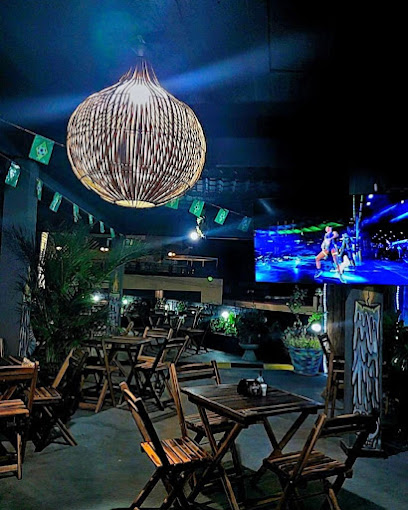
Boteco Recanto do Mar
Experience the vibrant flavors of Salvador at Boteco Recanto do Mar, where traditional Bahian cuisine meets a lively bar atmosphere.
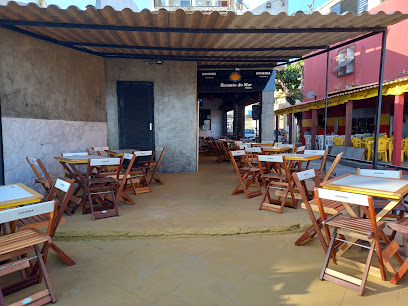
Bar e Petiscaria Tarde em Itapuã
Discover the vibrant flavors of Salvador at Tarde em Itapuã, where every plate tells a story and the atmosphere is alive with culture.
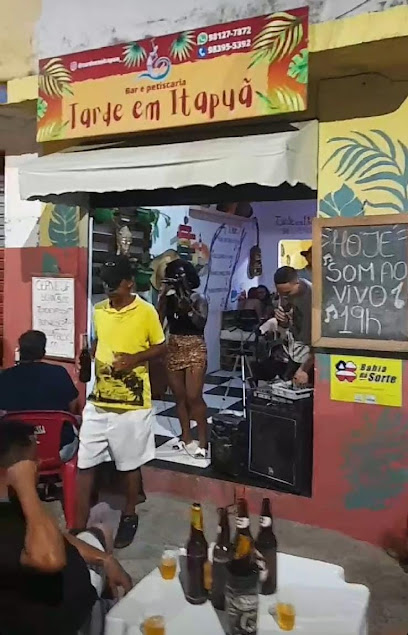
Local Phrases
-
- HelloOlá
[oh-lah] - GoodbyeTchau
[chow] - YesSim
[seem] - NoNão
[now] - Please/You're welcomePor favor/De nada
[pohr fah-vohr/deh nah-dah] - Thank youObrigado(a)
[oh-bree-gah-doh(ah)] - Excuse me/SorryCom licença/Desculpe
[kohm lee-sen-sah/deh-skool-peh] - How are you?Como vai?
[koh-moh vy] - Fine. And you?Bem. E você?
[behm/eh voh-seh] - Do you speak English?Você fala inglês?
[voh-seh fah-lah een-glehsh] - I don't understandEu não entendo
[eh-oo now een-ten-doh]
- HelloOlá
-
- I'd like to see the menu, pleaseEu gostaria de ver o cardápio, por favor
[eh-oo goh-stah-ree-ah deh vehr oh kahr-dah-pee-yoh/pohr fah-vohr] - I don't eat meatEu não como carne
[eh-oo now koh-moh kahr-neh] - Cheers!Saúde!
[sah-oo-deh] - I would like to pay, pleaseEu gostaria de pagar, por favor
[eh-oo goh-stah-ree-ah deh pah-gahr/pohr fah-vohr]
- I'd like to see the menu, pleaseEu gostaria de ver o cardápio, por favor
-
- Help!Ajuda!
[ah-joo-dah] - Go away!Vá embora!
[vah ehm-boh-rah] - Call the Police!Chame a polícia!
[shah-meh ah poh-lee-see-ah] - Call a doctor!Chame um médico!
[shah-meh oom meh-dee-koh] - I'm lostEstou perdido(a)
[eh-stoh pehr-dee-doh(ah)] - I'm illEstou doente
[eh-stoh doo-ehn-teh]
- Help!Ajuda!
-
- I'd like to buy...Eu gostaria de comprar...
[eh-oo goh-stah-ree-ah deh kohm-prahr] - I'm just lookingEstou só olhando
[eh-stoh soh oh-lhahn-doh] - How much is it?Quanto custa?
[koo-ahn-toh koos-tah] - That's too expensiveIsso é muito caro
[ee-soh eh moo-ee-toh kah-roh] - Can you lower the price?Você pode baixar o preço?
[voh-seh poh-deh bah-ee-shahr oh preh-soh]
- I'd like to buy...Eu gostaria de comprar...
-
- What time is it?Que horas são?
[keh oh-rahz sah-oh] - It's one o'clockÉ uma hora
[eh oo-mah oh-rah] - Half past (10)Meio-dia e meia
[may-oh-dee-ah eh may-ah] - MorningManhã
[mahn-yah] - AfternoonTarde
[tahr-deh] - EveningNoite
[noy-tcheh] - YesterdayOntem
[ohn-tehn] - TodayHoje
[oh-zheh] - TomorrowAmanhã
[ah-mahn-yah] - 1Um
[oom] - 2Dois
[doh-eez] - 3Três
[trayz] - 4Quatro
[kwah-troh] - 5Cinco
[seen-koh] - 6Seis
[sayz] - 7Sete
[seh-teh] - 8Oito
[oy-toh] - 9Nove
[noh-veh] - 10Dez
[deh-z]
- What time is it?Que horas são?
-
- Where's a/the...?Onde fica...?
[ohn-deh fee-kah] - What's the address?Qual é o endereço?
[kahl eh oh ehn-deh-reh-soh] - Can you show me (on the map)?Você pode me mostrar (no mapa)?
[voh-seh poh-deh meh moh-strahr (noo mah-pah)] - When's the next (bus)?Quando é o próximo (ônibus)?
[kwan-doh eh oh proh-ksih-moh (ohn-ee-boos)] - A ticket (to ....)Uma passagem (para ....)
[oo-mah pah-sah-zhehm (pah-rah)]
- Where's a/the...?Onde fica...?
History of Itapua
-
Itapua, located in Salvador, was originally inhabited by the Tupinambá people, who thrived in the lush coastal region. The arrival of Portuguese colonizers in the 16th century marked a significant shift in the area, leading to the establishment of plantations and the introduction of enslaved Africans. This melding of cultures laid the foundation for the rich Afro-Brazilian heritage that defines Itapua today.
-
In the 18th century, Itapua became a center for religious and cultural expression, with the construction of the Church of Nossa Senhora da Conceição da Praia, which still stands as a testament to the area's devotion. The church not only served as a place of worship but also as a gathering point for the community, reflecting the fusion of African and European traditions in the region.
-
During the 19th century, Itapua became a prominent site for the practice of Candomblé, an Afro-Brazilian religious tradition that blends African spiritual beliefs with Catholicism. The neighborhood's terreiros (Candomblé houses) played a crucial role in preserving African heritage and culture amidst the oppressive environment of slavery and colonial rule.
-
The 20th century saw Itapua transform into a popular tourist destination, particularly known for its beautiful beaches and vibrant cultural scene. The development of infrastructure, including hotels and restaurants, catered to the influx of visitors, while local artisans and performers showcased the rich cultural tapestry of the neighborhood through music, dance, and craft.
-
Today, Itapua is celebrated not only for its scenic beauty but also as a cultural hub that honors its diverse history. Events such as the Festival of Iemanjá, held annually at the beach, draw thousands of participants and reflect the ongoing importance of Afro-Brazilian traditions. The neighborhood continues to be a vibrant melting pot of cultures, attracting both locals and tourists eager to explore its rich heritage.
Itapua Essentials
-
Itapuã is accessible from various neighborhoods in Salvador. The most common way to reach Itapuã is by taxi or rideshare services like Uber, which provide a convenient door-to-door option. If you prefer public transport, take the city bus from the city center (such as the Lapa area) to the Itapuã terminal; several lines serve this route. The journey typically takes around 30-45 minutes, depending on traffic conditions. Alternatively, you can consider renting a car for more flexibility.
-
Itapuã is relatively small and walkable, making it easy to explore on foot. Bicycles are available for rent at various locations, and cycling along the beachfront can be a pleasant experience. Public buses are also an option for getting around; they connect Itapuã to other neighborhoods. Always check the local schedules for the most accurate information. Taxis and rideshare services are readily available for longer distances or late-night travel.
-
While Itapuã is generally safe for tourists, certain areas may have higher crime rates, particularly at night. Stay aware of your surroundings, especially in less populated or poorly lit areas. Avoid displaying valuables and be cautious of pickpockets in crowded places like markets. It's advisable to refrain from walking alone after dark, particularly in remote sections of the beach. Always ask locals or hotel staff for guidance on which areas to avoid.
-
In case of an emergency, dial 190 for police assistance, 192 for medical emergencies, or 193 for fire services. Ensure you have the contact information for your country's embassy or consulate in Brazil. For minor health issues, pharmacies are widely available, and many can provide over-the-counter medications. It is advisable to have travel insurance that covers medical emergencies.
-
Fashion: Do wear light, breathable clothing suitable for the tropical climate; however, dress modestly when visiting religious sites. Don't wear overly revealing outfits, especially in local markets or religious areas. Religion: Do respect local customs, and be mindful when taking photographs in churches. Don't disturb worshippers or engage in loud conversations near religious sites. Public Transport: Do give up your seat for the elderly or those in need. Don't eat or drink on public transport. Greetings: Do greet locals with a friendly 'Bom dia' (Good morning) or 'Boa tarde' (Good afternoon). Don't assume everyone speaks English; learning a few phrases in Portuguese can go a long way. Eating & Drinking: Do try local dishes such as acarajé and moqueca. Don't drink tap water; always opt for bottled water.
-
To experience Itapuã like a local, visit the vibrant fish market early in the morning to see the day's catch and the hustle and bustle of local vendors. Engage with local artists at the beach, who often sell handmade crafts and paintings. Don't miss the opportunity to enjoy live music at beachfront bars in the evening. For a unique experience, take a stroll along the picturesque Itapuã beach during sunset, a favorite among locals.
Nearby Cities to Itapua
-
Things To Do in Recife
-
Things To Do in Fortaleza
-
Things To Do in Brasília
-
Things To Do in Rio de Janeiro
-
Things To Do in São Paulo
-
Things To Do in Florianópolis
-
Things To Do in Hernandarias
-
Things To Do in Foz do Iguaçu
-
Things To Do in Puerto Iguazú
-
Things To Do in Villarrica
-
Things To Do in San Bernardino
-
Things To Do in Ypacarai
-
Things To Do in Aregua
-
Things To Do in Encarnacion
-
Things To Do in Asuncion








